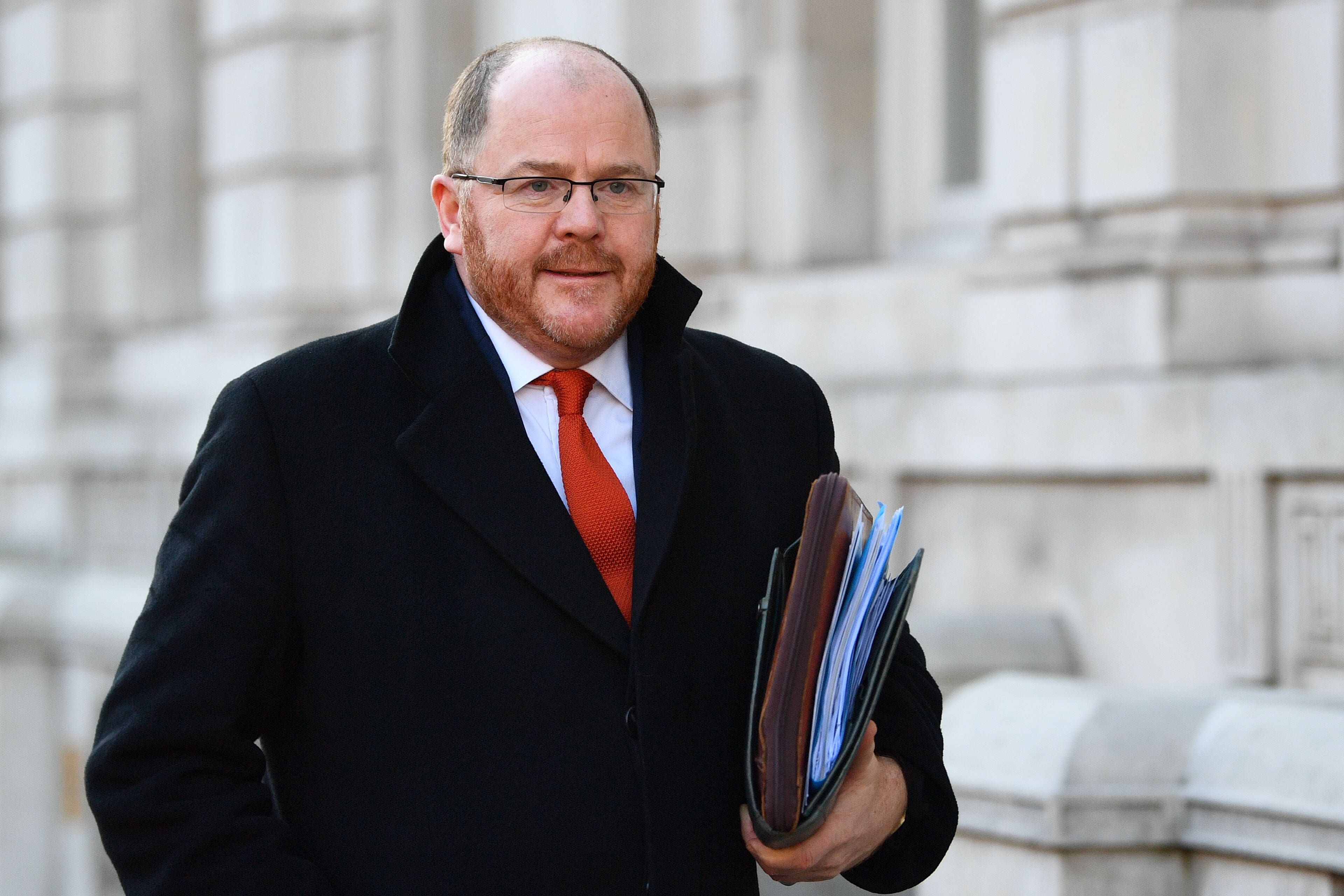Once upon a time, there was a young woman with £40,000 in the bank. This princely sum was garnered over a decade of scrimping and saving, with a little bit of help from the government’s lifetime ISA scheme – where they gifted you £1k if you managed to deposit £4k in a year – and topped up by, oh-so-inevitably, the Bank of Mum and Dad (in this case just mum). She felt safe and secure, knowing that if something happened – a sudden job loss or unexpected health condition – she would have a financial buffer to help weather the storm.
Then, she did what you’re supposed to do when you finally acquire that level of cash: she bought a house. And, within the year, nearly every last penny of those once-lofty savings had been obliterated. She – or should I say “I” – had officially joined the 11 million-strong contingent of working-age Brits who currently have less than £1,000 of savings in the bank.
This is according to a new report from the Resolution Foundation and the abrdn Financial Fairness Trust, which found that those with access to less than a grand accounted for about one in three working-age households. It calculates that the UK has a £74bn shortfall when it comes to money set aside for emergencies and retirement, compared to if each household had a minimum of three months’ salary saved.
When I saw this, I almost laughed out loud. Three months’ salary? I’d be lucky to store up three days’ worth.
I bought my property in the autumn of 2022. At first, it wasn’t so bad financially, despite living alone for the first time and having to pay all the bills as a single-income household. However, last year, as prices rose, the cost-of-living crisis started to bite and unexpected outgoings like a new roof took their toll. I found myself having to repeatedly dip into the meagre savings I still had. Every month, I deposited £200 into my rainy day fund. Every month, I moved it back to my current account, along with a bit extra, during the week before payday. As it currently stands, I have – deep breath – exactly £305.69.
To put this in context, I work full-time in a job with a salary that puts me in the top 25 per cent of earners in the UK. I don’t consider myself to have a particularly extravagant lifestyle; I don’t own a car, rarely buy clothes other than the occasional £5 Vinted top, and am in the insanely fortunate position of not having had to pay for a holiday in nearly a decade, thanks to my previous gig as a travel editor.
I do, admittedly, have a penchant for restaurant dinners and spicy margaritas. If I really wanted to, I could give up these precious nights out with friends. But sometimes I think, to what end? Yes, it’s irresponsible, but it doesn’t feel like I’ll ever be able to save sufficient funds to cover the big stuff – sorting out the damp-proofing, getting married, retiring (ha, the very idea!) – so why not spend the disposable income I do have on treats that will bring me joy?

Credit crunch: People with no savings are paying for bigger outgoings on cards (Getty Images/iStockphoto)
This sentiment is shared by Grace*, a 40-year-old mum of one in a well-paid, full-time editing job. She currently earns £50k; her partner is also employed full-time. Still, they struggle to put anything aside each month.
She and her partner have a grand total of £102 of savings although, she’s quick to add, the amount of debt they’ve accrued thanks to an unexpected tax bill means that they’re really in the red. “I’ve always lived a very hand-to-mouth existence,” she tells me. Having had an early career typified by badly paid jobs, Grace assumed she would finally start saving when she earned more money. “But I just have a nicer life when that happens,” she says. “If you’ve had to have a reasonably tight belt for a while, the temptation is to enjoy being able to relax for a little bit. Lifestyle creep is real. Earning more, you think: we can go to the cinema instead of watching Netflix; we can afford to pay for a babysitter and have a meal out.”
“Lifestyle creep” is the idea that, as our income increases, so does our standard of living. Things that were previously considered luxuries become the norm. It’s why you see stories about undeniably wealthy people claiming to be struggling – their outgoings have grown in line with their finances. A new kitchen, second home, private school fees and several holidays a year are now not considered “nice-to-haves” but “necessities”. MP George Freeman is perhaps the perfect example of the phenomenon; he hit headlines last month for saying he’d quit his role as science minister because he could no longer afford his mortgage payments. This was despite being on a salary of almost £120,000 a year, putting him in the top 1 per cent of all British earners.
The mortgage issue highlighted by Freeman is real, though. Grace’s mortgage rate was previously 1.5 per cent; it will leap to more like 5 per cent when they remortgage, costing hundreds of pounds more a month. Meanwhile, childcare alone costs them £1,500 a month: “Everything’s so expensive.”
If you’ve had to have a reasonably tight belt for a while, the temptation is to enjoy being able to relax for a little bit. Lifestyle creep is real
While Ophie, 35, from Kent, earns significantly less than Grace, she has far fewer major outgoings. She works three jobs – as an artist, bartender and shop assistant – that add up to more than a full-time job. Renting a flat with her husband, who is employed full-time, Ophie is free from the costs of being a homeowner; doesn’t own a car; and doesn’t have children. Still, she says, she currently has just £130 in savings.
“At one point, that would have terrified me,” she tells me. “The thought of not having an escape route… Now, I’m just numb to it.”
Having never been out of work since leaving education, Ophie has nevertheless always found it a challenge to put money aside. “The cost-of-living crisis hasn’t helped as a follow-up to Covid,” she says. “But also my entrance into the working world was during the financial crisis. It’s always been a struggle.”
Ophie has accepted that, if a big unexpected bill comes their way, she and her husband will simply “make it work”. Most recently, their beloved dog needed an operation that pet insurance wouldn’t cover. The £900 cost of the procedure went straight on credit, to be paid back in monthly instalments. “I’m quite nonchalant about it these days,” she says of borrowing. “I’ve sadly gotten used to it.”

George Freeman said he quit his ministerial role because he could not afford his mortgage on the salary (PA Archive)
Assistant headteacher Clare* from East London, who currently earns £46,000 a year, reports a similar struggle. The mother of three has a personal and a joint bank account – both are currently overdrawn. “I had some savings before I met my husband,” she says. “I was always good with money. But we bought our first house and did it up, and then had two kids, before moving to a bigger house which we also renovated. In terms of moving up the pay scale at work, our SLT (senior leadership team) took a pay freeze to help the school’s finances about four years ago.”
She says it’s “scary” to find herself in this financial position aged 40, but tries to look on the bright side: “I live in a lovely house and we can afford to pay the bills so we are very lucky.”
So how did we get into a position where so many of us have no monetary safety net?
Education is one area in which the UK has been historically weak. Two-thirds of young adults who experienced financial difficulties believe better financial education could have helped them, research conducted by think tank the Centre for Social Justice revealed. Although financial education was officially added to the curriculum for secondary schools run by local authorities in 2014, it was largely incorporated into non-core subjects such as PSHE, with the FT’s Financial Literacy and Inclusion Campaign (Flic) finding that pressure on teachers and lack of time impacted on the delivery of provision. Meanwhile, it still isn’t even compulsory for free schools and academies.
And getting in there early does make a difference. A 2022 survey by the Money and Pensions Service (MaPS) found that children who received a meaningful financial education were more likely to save money more regularly, feel more confident about managing their money, and demonstrate positive day-to-day money management skills.
At one point, that would have terrified me, the thought of not having an escape route… Now, I’m just numb to it
There is at least some indication that things might be changing on this front; in November 2023 it was announced that the UK’s failures when it comes to teaching financial education would be investigated by MPs in a formal review. The UK Strategy for Financial Wellbeing has set a goal of two million more children and young people receiving a meaningful financial education by 2030.
The answer proposed by the Resolution Foundation, the think tank behind the original savings research, is to build upon the existing auto-enrolment pension scheme. It has suggested upping the contributions from 8 to 12 per cent – with employers and employees putting in 6 per cent each – and ringfencing 2 per cent of the total money into an easy-access “sidecar savings” scheme of up to £1,000, which people can dip into pre-retirement when they’re in need.
As for Grace, although she’s recently been thinking more about saving, there remains little incentive to do so. “There’s nothing to encourage us to save, really,” she says. “The government doesn’t want you to save – they want you to spend so that it benefits the economy. So really, by going out to dinner, I’m helping us all!”
*Names have been changed
From news to politics, travel to sport, culture to climate – The Independent has a host of free newsletters to suit your interests. To find the stories you want to read, and more, in your inbox, click here.
News Related-
Up to 40 Tory MPs ‘set to rebel’ if Sunak’s Rwanda plan doesn’t override ECHR
-
Country diary: A tale of three churches
-
Sunak woos business elite with royal welcome – but they seek certainty
-
Neil Robertson shocked by bad results but has a plan to turn things round
-
Tottenham interested in move to sign “fearless” £20m defender in January
-
Bill payers to stump up cost of £100m water usage campaign
-
Soccer-Venue renamed 'Christine Sinclair Place' for Canada soccer great's final game
-
Phil Taylor makes his pick for 2024 World Darts Championship winner
-
Soccer-Howe aims to boost Newcastle's momentum in PSG clash
-
Hamilton heads for hibernation with a word of warning
-
Carolina Panthers fire head coach Frank Reich after 1-10 start to the season
-
This exercise is critical for golfers. 4 tips to doing it right
-
One in three households with children 'will struggle to afford Christmas'
-
Biden apologised to Palestinian-Americans for questioning Gaza death toll, says report
